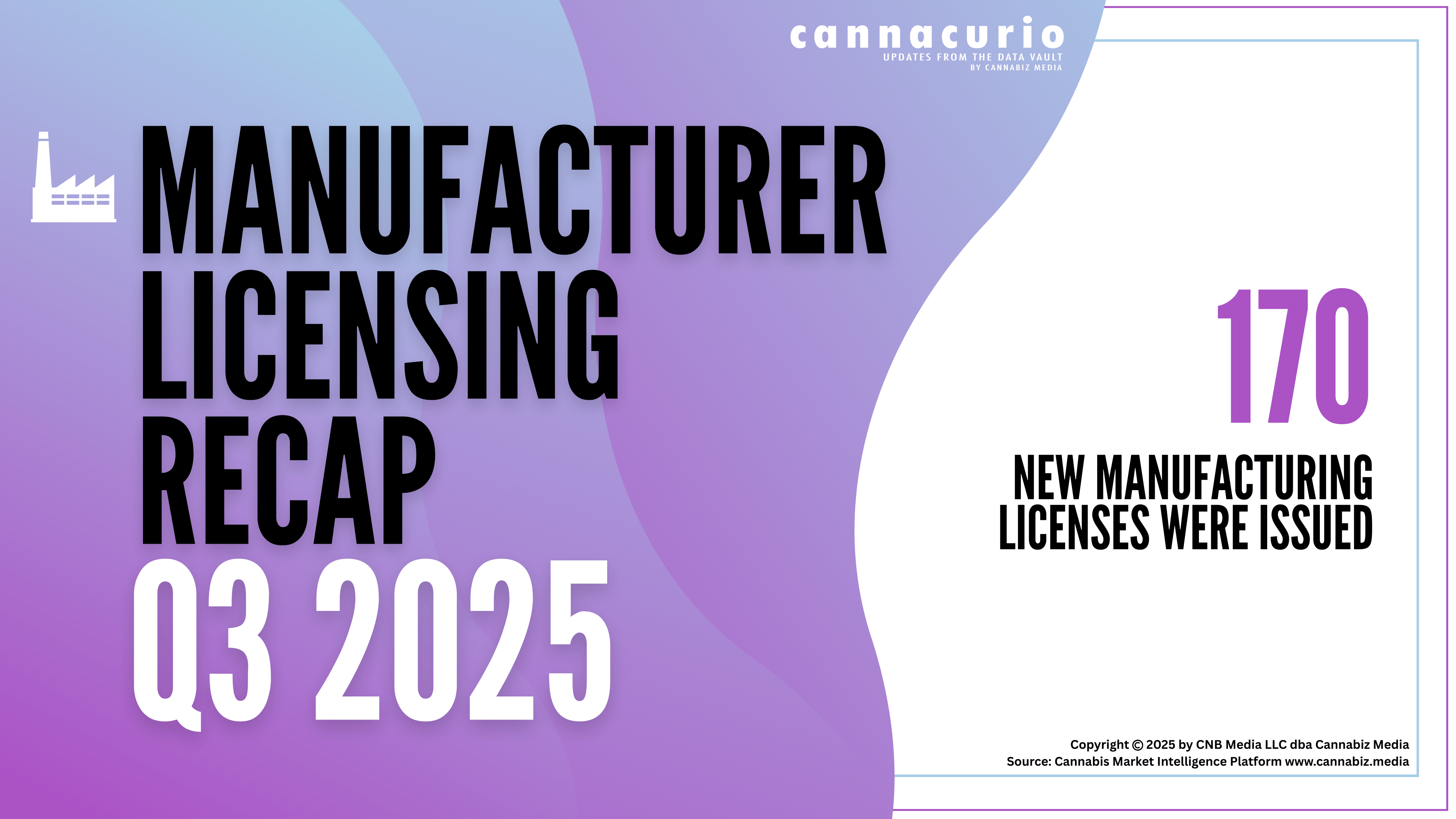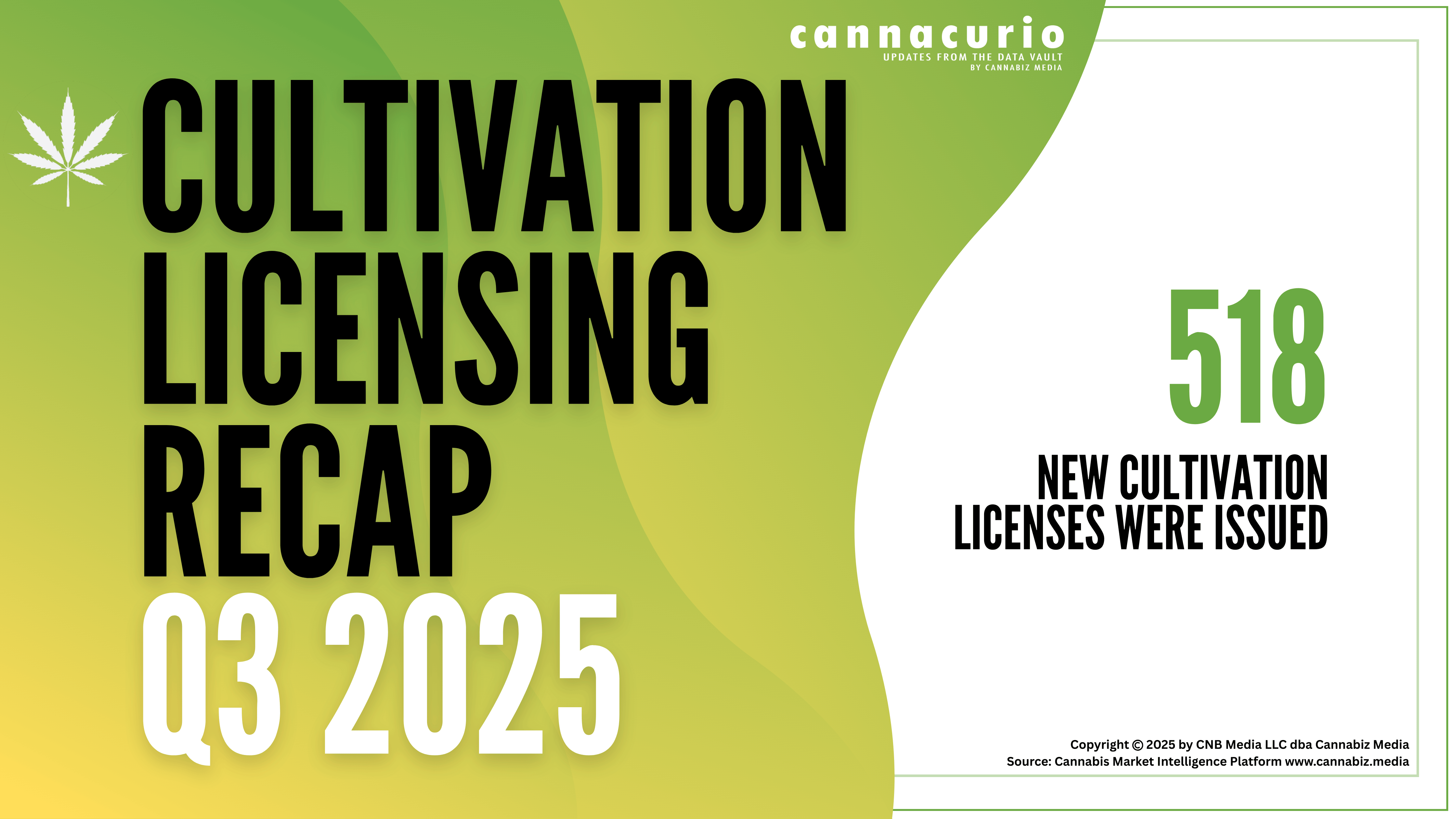
Things You Need to Do to Get a Cannabis Business License
In 2020, five states’ residents voted to allow recreational and/or adult-use cannabis. Specifically, Arizona, New Jersey, Montana, and South Dakota voters approved recreational cannabis, and South Dakota and Mississippi voters approved medical cannabis.
But the growth of the industry won’t be limited to those five states during 2021. Already, news stories have broken about states like New York and Connecticut aggressively considering adult-use legalization in the near future.
Suffice it to say, there will be many opportunities to join the industry, but entrepreneurs who want to own and operate a business in the legal cannabis supply chain can’t just set up shop and open their doors. In this industry, getting a cannabis business license is a requirement first, and it’s rarely easy or cheap to do so.
To help you get started, this article introduces the key steps you should take to get a cannabis license in the United States. However, it’s important to understand that licensing laws and operational laws vary from state to state, and you need to understand them thoroughly if you want to have any chance at securing a license.
With that said, make sure you learn the laws in the state where you want to get a license and understand what’s coming in 2021, so you don’t miss anything. Getting a cannabis business license can be expensive, and you don’t want to make any mistakes!
Educate Yourself and Prepare
There were a lot of developments in the cannabis industry in 2020, and one thing that became apparent was that license holders who don’t have a solid business plan and funding are unlikely to succeed. With continual regulatory changes, entrepreneurs need to be extremely knowledgeable and prepared.
This begins with preparing to apply for a cannabis business license. Start by researching the cannabis market and laws in your state as well as the license application requirements license holder eligibility requirements.
In addition, do your homework and make sure you fully understand any local requirements or restrictions that could impact your license application and your business operations. For example, if you can’t get local approval to do business in your selected municipality in California, you don’t be apply to get a state license, and California is not the only state where you need to win a local license or approval before you can get a state license.
Here are some questions to ask yourself at this early stage:
- Are you willing to comply with the state’s laws for cannabis businesses?
- Do you meet the qualifications to apply for a license?
- Do you need business partners? Who will you partner with? Do they meet the application requirements?
- How much funding do you need and where will you get it?
- How easy or difficult will it be to find property to buy or lease for your business operations?
- What are the local rules and regulations? What are the local tax rates and implications for your business?
Your early research should help you answer these questions to confirm whether or not you’re ready to not only jump into the cannabis industry but also to succeed.
Write a Business Plan
When you start any business, you need to write a business plan. A well-written business plan lays everything out on paper. It also helps ensure you’re taken seriously when you seek funding or apply for a cannabis business license.
Write out your entire business plan considering the laws in the state where your business would operate today and how those laws might change in the next several years. The cannabis industry is evolving rapidly, so you need to make sure your business is built on a solid foundation yet is agile enough to grow with the market.
RELATED READING: How to Write a Business Plan for the Cannabis Industry
Develop Procedures
While it might seem like you don’t need to create procedures for things like payment processing, shipping, distribution, compliance, recordkeeping, accounting, security, and so on, many states require that you include written standard operating procedures (SOPs) with your license application.
The key to developing SOPs this early in the process is to bring an expert onto your team or outsource the task to an expert. The person who writes your SOPs needs to have experience in the industry and understand the operations and compliance requirements of the type of business you want to launch.
If the license application in your state requires that you provide written procedures for specific operations, make sure you provide details so it’s clear that you’ve thought everything through and have a strong chance to be successful.
Create a Budget and Financial Projections
You can’t start a business in any industry without money, and you’ll definitely need a sizeable amount of money to get a cannabis license. For example, licensing fees and applications fees can be thousands or hundreds of thousands of dollars. The amount varies depending on the state and the type of license you want to get, but you’ll need a significant amount of money on hand to start your business and to keep it running until you can generate revenue and profits. For example, many states require significant annual payments to keep your license once you get it.
Therefore, develop a budget that includes things like rental/leasing costs, licensing costs, employee salaries and benefits, security, utilities, supplies, and anything else you’ll need to pay for. Work with a financial expert (or bring one onto your team) who understands the cannabis industry and can help you create realistic financial projections.
Not only do you need a budget and financial projections to start a business the right way, but you might also need to include them in your state’s licensing application.
Build Your Team
It might seem too early to think of employees, but you may need to bring in partners and key employees to help you get funding and a cannabis business license. If you’re looking for investors to help secure the capital needed to launch your business, then showing them that you have knowledgeable, experienced leaders who increase the business’ chance of success will make them more likely to consider investing.
Similarly, the people who review your license application want to see that you have the right expertise and skills on your team to launch a business that will reliably help keep the state’s cannabis market running. For example, a cultivator application would look stronger if a highly experienced, expert master grower is leading the grow operations.
In addition, many states require that partners named on the license application go through background checks, meet specific qualifications, and obtain individual licenses to operate in the industry. You need to make sure your partners will pass and qualify before you include them on your application.
Today, more people are completing educational programs and receiving certifications related to cannabis-specific professions, and jobs in the cannabis industry are luring highly-skilled workers from diverse industries across the country. Be prepared to spend some time finding the right people.
Obtain Funding
Traditional banks are unlikely to loan you money since marijuana is still illegal at the federal level, so plan to use your own savings, investments from family and friends, or angel investors to get your business off the ground.
This may change in the future if legislation passes through both Houses of Congress and is signed into law, but for now, options for cannabis business funding are limited. Another option is to partner with another business, but you may have to get creative since typical avenues to obtain capital won’t be available to you.
Regardless of how you obtain funding, one thing is certain – you need more money than you think you will, and you’ll need to prove that you have access to it in your license application.
Secure Property
Many states require that cannabis business license applicants already have real estate secured for their businesses. That means you need to find a property that meets the licensing requirements in your state, get approval from the landlord and owner (if you’re leasing) to use the property for a cannabis business, and get approval from the municipality where the property is located to use it for cannabis business operations.
Keep in mind, a number of states allow local municipalities to charge fees, require special permits and/or licenses, and levy additional taxes on cannabis businesses. Therefore, it’s essential that you do your research and make sure the property you choose is a viable choice for your business before you pay anything or submit your state license application.
Complete the License Application
With all of your research done and application requirements in place, it’s time to write your cannabis license application – a process that some applicants spend many months and many thousands of dollars with the help of consultants and industry experts to complete.
The most important things to remember as you work on your license application are to be honest and very thorough. Explain everything in detail to show you’ve done your planning and preparation correctly.
Application reviewers want to know if they grant you a license, your business can be up and running with no delays or problems that could jeopardize the state’s marijuana program. Show them they can be confident in you, your team, and your business model.
Keep in mind, some states have multiple applications and every state’s application is different. The application process varies as well with some states including specific scoring criteria. For example, this criteria could include information related to:
- Qualifications of the applicant
- Ability to operate
- Operations plan
- Applicant organization, ownership, capital, and tax status
- Product manufacturing
- Quality assurance and staffing
- Geographic distribution
- Financial standing
- Real property and equipment
- Transportation and distribution
- Technical and technological ability
- Infrastructure
- Economic impact and diversity
- Community benefit
- Sales and dispensing
- Affiliation with a doctor
- Security
- Architectural design
- Cover letter
- And more
Bottom-line, you could be required to provide a lot of information, so don’t rush the process. It takes a lot of time to produce a high quality application. In fact, some cannabis businesses submit applications that are hundreds or thousands of pages long. This isn’t something you can should do quickly.
Remember, the application process is a competition. Yours needs to not just meet the minimum requirements. It needs to stand out from the crowd and show reviewers that your business is ready and able to support the state’s marijuana program better than any other business.
Take your time, be detailed, and write an application that proves your business is the right choice.
Key Takeaways to Get a Cannabis Business License
The cannabis industry is exciting and growing, but there are barriers to entry that cannabis businesses need to be prepared to overcome. With a strong business plan, funding, real estate, and a well-written license application, your business will have the best chance to secure a license and join the cannabis industry.
It’s up to you to be successful, so do your homework, learn as much as you can about the industry, your state’s laws, and compliance requirements, and most importantly, be realistic with your initial and ongoing investment requirements as well as your revenue and other financial projections. The well-prepared, knowledgeable applicant typically has the best chance of winning a cannabis license and being successful in the industry.
Originally published 7/2/19. Updated 1/15/21.

.png)

